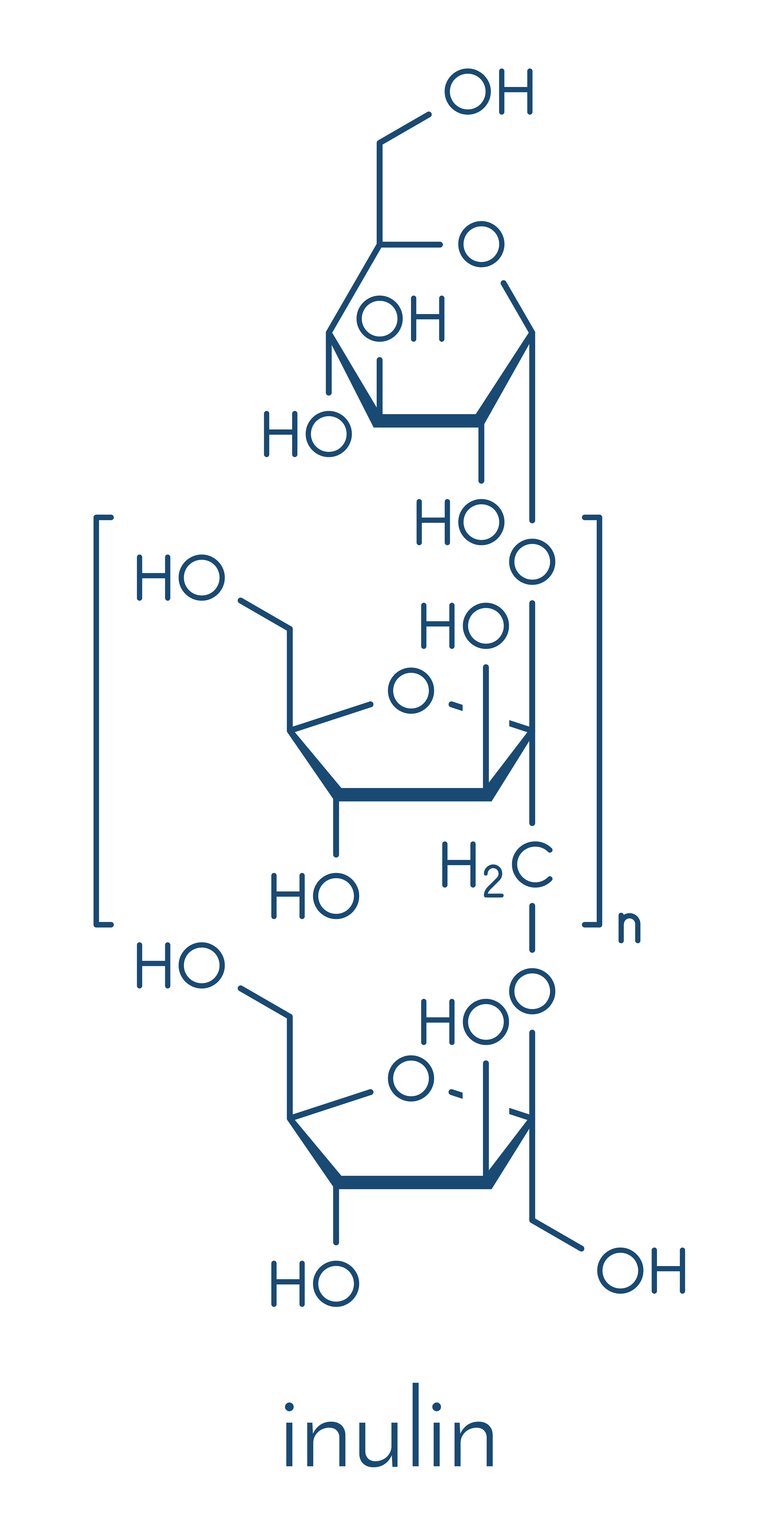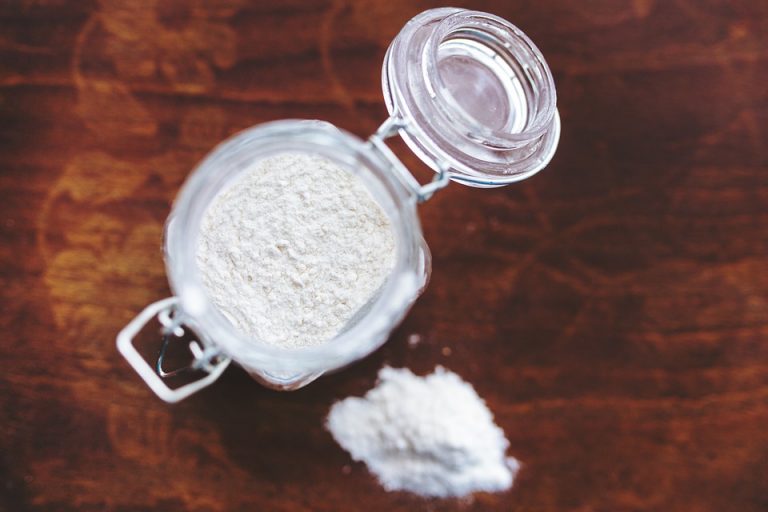Supplements that support slimming process often contain natural ingredients derived from plants. In the fight against excessive pounds inulin is one of the most effective substance. Inulin support of the weight loss is mainly based on the reduction of appetite, but it is also worth exploring its other properties which has been used in supplementation and healthy cuisine.
Sources of inulin
Inulin is a substance composed of glucose molecules and groups of molecules of fructose, known to be complex carbohydrates. Naturally occurs in the potato tubers, rhizomes and stems of some plants. It is a component of dietary supplements, fat substitutes, flour and gelatine. Most commonly it is extracted from the chicory and artichoke. As a result of a suitable processing, a white powder is produced, and is added to food products and dietary supplements. In health food stores and pharmacies can be purchased in the form of unprocessed inulin, which is a powder or in pill form.

Losing weight is easier
Inulin is worth paying attention to during weight loss because it is a natural replacement for fat. The possibility of replacing it with some foods makes you not need to completely give up certain dishes making it easier to persevere on a diet. 1 gram of inulin is 1.5 calories. This dose can replace 4 grams of fat, which provide 36 calories. In conjunction with a reduction in appetite, this makes inulin an ally of slim figure.
Effect of the bacterial flora
As you know, the metabolism is dependent on proper bowel function. Also here you can see the beneficial effects of inulin, which is a natural prebiotic, affecting resource of good bacteria Lactobaccillus and Biidobacterium. It is very important that inulin exhibits resistance to digestive enzymes. The beneficial effect of this substance on the intestinal function is not limited only to improving the metabolism. Strengthening bacterial flora results in an improvement of the immune system, and so on immunity. According to the researchers inulin also weakens the action of the enzyme, which is associated with hormone-dependent tumors.
Lower blood sugar and cholesterol
Inulin can slow down the absorption of the sugar from the food thus lowering the glycemic index of food. It also positively affects the level of glucose in the blood. Consuming is therefore particularly recommended for diabetics. Another group that could benefit from taking of inulin are people with elevated cholesterol levels. This substance binds fatty acids in the intestine, so reducing the amount of LDL cholesterol and triglycerides. This means that inulin may play an important role in the prevention of atherosclerosis.
The use of inulin
The recommended daily dose of inulin is 20 grams or 3-4 tablespoons. Best to start with lower amounts, because there is a possibility of a laxative effect in patients who are not used to that substance. Culinary uses of inulin are quite broad. During the cooking process takes the form of jelly, so it is an excellent substitute for gelatine and other gelling agents. It can be used for homemade mayonnaise, sauce, soup or jelly. In the food industry it is sometimes used in the production of desserts, yoghurts, chocolate and margarine. Although inulin is a carbohydrate, it is not a good substitute for sugar because it is not sweet enough. Supplementation industry uses inulin to produce: probiotics, prebiotics, and as a component of fat burners.
Take-home message
Inulin is a natural substance found in plants, which can help lose weight, while the other presents a number of health-promoting properties. It is used for the supplementation, as well as in the food industry.







